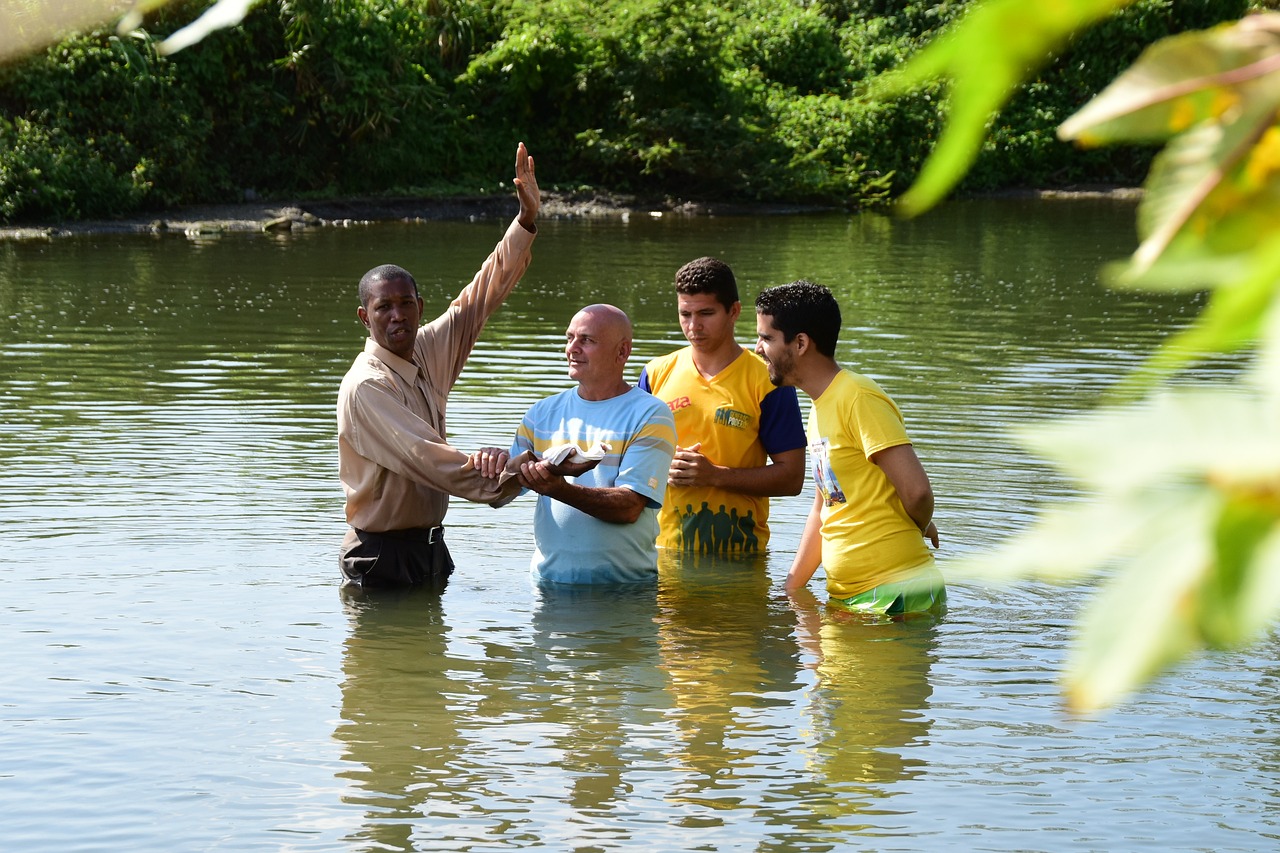An Examination of Its Significance and Scriptural Foundation
Whether water baptism saves us is deeply embedded in Christian theology and practice. To understand its significance, we must delve into the New Testament, which emphasizes the essential nature of water baptism in the early Christian community.
On the day of Pentecost, more than 3,000 individuals received water baptism, highlighting the ordinance’s profound impact and indispensable significance.
This article will explore the importance of water baptism, its scriptural basis, and its contemporary relevance, addressing its perceived neglect in modern-day churches.
The Day of Pentecost: A Watershed Moment
The event of Pentecost, recorded in Acts 2, holds immense significance in Christian history. It was a time of great spiritual awakening and the birth of the early Church. Following the reception of the Holy Spirit, the Apostle Peter delivered a compelling sermon that convicted the hearts of his listeners.
In response to their question, “Brothers, what shall we do?” Peter replied, “Repent and be baptized, every one of you, in the name of Jesus Christ for the forgiveness of your sins, and you will receive the gift of the Holy Spirit” (Acts 2:38, NIV).
The command was not a suggestion but rather an order that required immediate action.
Numerous people immediately understood and accepted the urgency and significance of Peter’s command, which resulted in the baptism of about three thousand people that day (Acts 2:41, NIV).
This mass baptism signifies the foundational role of water baptism in the early Church. Entering into the new covenant community visibly represented repentance, forgiveness, and the reception of the Holy Spirit.
The Scriptural Basis for Water Baptism
Water baptism is frequently mentioned throughout the New Testament, underscoring its importance. Here are several key scriptures:
- Matthew 28:19-20:
- “Therefore go and make disciples of all nations, baptizing them in the name of the Father, Son, and the Holy Spirit, and teaching them to obey everything I have commanded you.”
- In the Great Commission, Jesus commands His disciples to baptize, indicating its essential role in making disciples.
- Mark 16:16:
- “Whoever believes and is baptized will be saved, but whoever does not believe will be condemned.”
- This verse links belief and baptism closely with salvation, suggesting baptism is an integral step in the faith journey.
- Acts 8:12:
- “But when they believed Philip as he proclaimed the good news of the kingdom of God and the name of Jesus Christ, they were baptized, both men and women.”
- The practice of baptism immediately following belief is evident in the ministry of Philip.
- Acts 10:47-48:
- “Surely no one can stand in the way of their being baptized with water. They have received the Holy Spirit just as we have. So he ordered that they be baptized in the name of Jesus Christ.”
- Even after receiving the Holy Spirit, Peter’s directive to baptize Cornelius and his household underscores the importance of water baptism as a formal induction into the Christian community.
- Romans 6:3-4:
- “Or don’t you know that all of us baptized into Christ Jesus were baptized into his death? Therefore, We were buried with him through baptism into death so that, just as Christ was raised from the dead through the glory of the Father, we too may live a new life.”
- Paul explains baptism symbolizes our union with Christ in His death, burial, and resurrection, signifying life’s profound transformation and newness.
The Case of Cornelius
The account of Cornelius in Acts 10 is particularly illuminating. Cornelius, a Gentile centurion, received a vision instructing him to seek Peter. When Peter arrived and preached, the Holy Spirit fell upon all who heard the message. Recognizing this divine endorsement, Peter declared:
“Can anyone keep these people from being baptized with water? They have received the Holy Spirit just as we have” (Acts 10:47, NIV).
Peter then ordered them to be baptized. This episode illustrates that even those who receive the Holy Spirit are still called to undergo water baptism, reinforcing its importance as an outward sign of inward grace and inclusion in the Church.
The Contemporary Church and Baptism
Despite its clear historical and scriptural mandate, water baptism appears to have been sidelined in many modern churches. This neglect might stem from various theological interpretations, logistical challenges, or a shifting focus toward other expressions of faith. However, returning to the New Testament teachings and practices, it is evident that baptism is not merely a symbolic act but a necessary step in the faith journey.
Conclusion: Rediscovering the Significance of Water Baptism
Water baptism, a transformative act, is a critical component of Christian discipleship, deeply embedded in the fabric of the New Testament Church. From the day of Pentecost to the household of Cornelius, the early Christians demonstrated the indispensable role of baptism in signifying repentance, forgiveness, and new life in Christ. Modern churches must re-embrace this sacrament, ensuring new believers follow the apostles’ biblical pattern.
By prioritizing water baptism, contemporary Christians can reconnect with the rich heritage of their faith, experiencing the fullness of what it means to be buried with Christ in baptism and raised to walk in the newness of life. Let us heed the direct command of Peter and Paul and the example of the early Church, recognizing water baptism not as an optional ritual but as an essential act of obedience and a vital expression of our faith.

